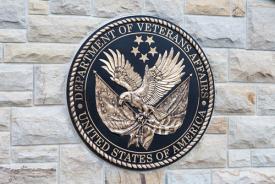The following story is by Benjamin Robbins, a Harvard Medical Student , and a winner of the 2012 Costs of Care Essay Contest. It was originally posted on Costs of Care
The following story is by Benjamin Robbins, a Harvard Medical Student , and a winner of the 2012 Costs of Care Essay Contest. It was originally posted on Costs of Care
The Saturday after Sandy hit, I was the medical student in a Cambridge, Massachusetts emergency room. Around the time my shift started, Andrew, a man about my age, couldn’t bear the pain in his nose any longer. The ED nurse still talks about the “huge booger” bulging from his nose. A few days before coming to the ED, he’d left behind his flooded, powerless Brooklyn apartment seeking refuge in his childhood home of Cambridge. He outcompeted the crowds to become part of the lucky handful of New Yorkers to catch a bus out of town.
Andrew had friends near Cambridge, because until a few months ago he worked for a company based in Boston. He liked the job, because it provided “good pay and benefits with enough time off to see friends.” One day everything changed. While biking to work, he’d just crossed over the Charles River when a car swerved into his path. He smashed into the side and flew over the hood, landing face-first on concrete. His teeth were shattered, and he’d need surgery to repair fractures in his face. Insurance covered his bills until it came time to put in new teeth. His policy excluded oral surgery. If he wanted teeth, he’d need ten thousand dollars.
He plainly told me that after the accident he started looking for jobs that provided health insurance inclusive of oral surgery. “I was still single,” he explained, and “I figured it’d be easier to meet someone if I had teeth.” In a stroke of luck, he landed a dream job in Manhattan with the right benefits. There was a catch, however; health coverage wouldn’t start for a year. Believing it unlikely that something else would happen to him, he signed on and moved into an apartment near Prospect Park in Brooklyn.
A few months later, we met. He was in a hospital bed, and I was standing awkwardly behind his physician. “What brings you in?” I asked, trying to ignore the red bulge emerging from his nostril. “I’m a pretty hairy dude” he said, referring to his bushy beard. “I think I have an ingrown hair.” Two days earlier he’d noticed a “pimple” inside his nose. Then another. They grew and became painful over the next day. They’d gotten so big that his nose looked crooked. With his recent facial injuries, we’d need a CT to see behind his swelling. “I’ve got to pay this out of pocket, so could you ballpark how much that costs?” We couldn’t. “Are we talking about like $10 or $10,000?” We didn’t know that either.
I felt anxious. All my classes on clinical outcomes, and the ballooning costs of healthcare, and I couldn’t estimate the cost of a CT, or the risks of not doing one at all. I guessed the doctor had the same thoughts, and was eager to see how she’d respond. We heard a distant alarm. “One second” said the physician, leaving the room. Suddenly I was alone with Andrew and his terrifying questions. He asked “What would you do in this situation?” I had no idea. I mumbled something about him needing to make a decision with limited information, but I’m quite certain I provided nothing useful.
Thankfully, before Andrew realized that I wasn’t saying anything, the doctor returned carrying a thick 18-gage needle. “Ok, decisions on the CT?” Andrew responded “I’m gonna pass.” A few seconds after explaining how we’d lance the “pimples” in an effort to drain them, the needle was inside Andrew’s nostril. He gave a loud, shrieking moan as the needle punctured skin. A few seconds later, he erupted with the most violent sneezes I’ve seen, and it was over. The doctor said “it’ll be really important to return in a couple days. You’re welcome to come back here or see a nose specialist.” Andrew asked knowingly, “You aren’t sure of the cost of either visit, right?” She responded “I’m sorry I don’t know the cost of an ED trip, and I called an ENT physician for the price of an appointment with him. He didn’t know.” Andrew didn’t come back.
I called him a few weeks later to followup. He apologized for not coming back, saying “it wasn’t bad enough to potentially pay thousands of dollars for another visit.” We talked about the frustrations of that night. He summarized his experience, saying “it felt like I was in a dark room. I kept looking for the light switch, but never found one.”





